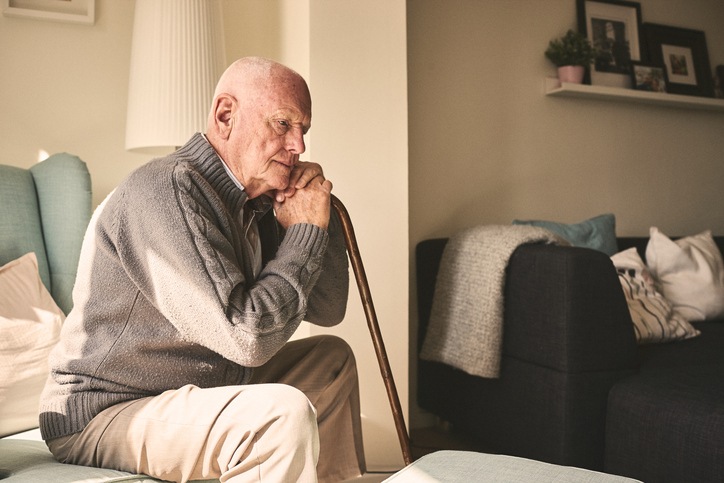Unexpected clinical emergencies may arise abruptly in palliative and end-of-life care. If prompt medical intervention is not provided, these emergencies can impact a patient’s well-being and overall quality of life. Additionally, such situations can be highly distressing for both patients and their companions. It is crucial to identify patients who may be susceptible to such emergencies and establish a proactive plan if an emergency does occur.
Professionals in health and social care must possess the ability to recognise indicators and manifestations of emergencies in palliative care. Furthermore, they should be knowledgeable about the appropriate procedures for promptly securing urgent medical referrals when necessary.
Common palliative care emergencies
It is essential to be prepared for a range of critical situations. These common palliative care emergencies encompass physical challenges such as pain crises, dyspnea, and seizures, as well as emotional and spiritual distress, which require sensitive and immediate attention.
Pain Crisis
A sudden and severe pain that cannot be adequately managed with the patient’s regular pain control measures.
Dyspnea (Breathlessness)
An acute and intense difficulty in breathing, particularly distressing for patients with advanced illnesses.
Nausea and Vomiting
Persistent and uncontrollable nausea and vomiting that standard anti-nausea medications cannot alleviate.
Seizures
Episodes of uncontrolled muscle activity that can manifest in patients with neurological conditions, such as brain metastases.
Delirium
Rapid changes in mental status, often triggered by metabolic imbalances or medication side effects, along with emotional distress and spiritual concerns, necessitating immediate attention.
Emotional Distress
Intense emotional suffering and psychological anguish requiring immediate support within the palliative care context.
Spiritual Distress
Profound spiritual or existential struggles that significantly impact the patient’s well-being, necessitating compassionate and empathetic care.
Preparing for an emergency
To ensure the highest level of patient care and safety, it is imperative for healthcare professionals to implement a comprehensive approach that includes the following key steps:
- Identify high-risk patients, like those with cancer; consult emergency guidelines for risk factors.
- Monitor changes in risk during staff handovers, especially if the illness progresses. Understand patient preferences for emergency situations, such as hospital admission or DNACPR orders.
- Communicate sensitively with the patient’s approval to prepare those close to them for potential emergencies.
- Know emergency contacts based on local policies, both during and after normal working hours.
- Recognize common emergencies and understand your role in the care team during such situations.
Planning for an emergency as a carer
It can be good to create a back up care plan to ensure the well being of a loved one that you may be caring for or living with. This back up care plan would involve identifying a family member or friends who can serve as a back up carer, obtaining essential information about their healthcare needs. This would include:
- Formulating an emergency plan
- Getting copies of documents and emergency plans set in place by professionals
- Discussing what you would need to do
- Informing the council of your role as a caregiver
- Saving emergency numbers on your phone
For more information on becoming a carer for your loved one to support them with palliative care emergencies, take a look at this article published by Marie Curie.
Dealing with an emergency
When dealing with an emergency in palliative care:
- Try to stay calm
- Call for help
- Clearly explain what’s happening to the patient and any family, friends or carers who are there
- Tell any family or friends who are not there about the emergency, if appropriate.
How can Cavendish Homecare help?
At Cavendish Homecare we are experts in providing palliative homecare for individuals with terminal illnesses who want to remain in their own homes. We work to support the patients and their families with sensitive and comforting palliative care in London.
If you would like to enquire about our palliative care, contact us on, 020 3008 5210 or email us at info@cavendishhomecare.com.
About the Author…
Mairead Liston
Registered Nurse and Founder of Cavendish Homecare
Mairead Liston, a dedicated figure in healthcare, began her journey as a nurse and midwife, laying the foundation for a remarkable career. Driven by passion and expertise, Mairead established a successful nursing agency, serving as a crucial staffing resource for major hospitals in London and the UK.
In 2010, Mairead founded Cavendish Homecare with a mission to provide exceptional care in the comfort of people’s homes. Mairead’s areas of expertise encompass palliative and end of life care, post-operative care, and cancer care, ensuring the delivery of the highest quality of care to her clients.
Her transformative impact is exemplified through prestigious awards, including the ‘Lifetime Achievement’ award and the Chief Nursing Officer in Adult Social Care Silver award, recognising her dedicated service to social care.
By becoming a member of the Guild of Freemen of the City of London, Mairead not only emphasises her active support for both current and future nurses but also plays a vital role in contributing to the ongoing evolution of the nursing profession.

 Back
Back